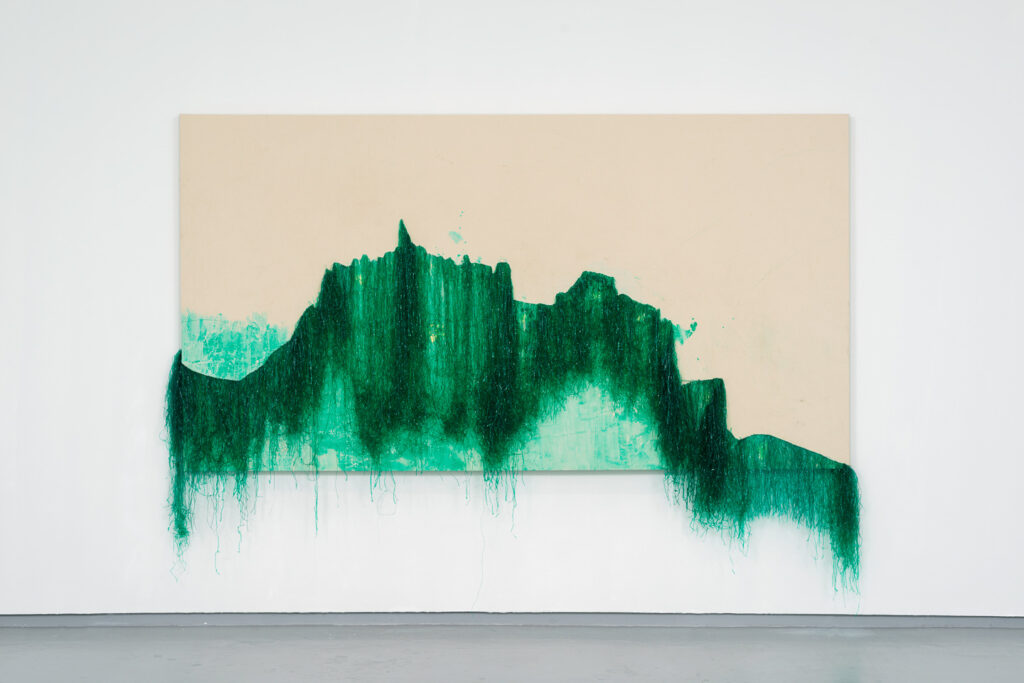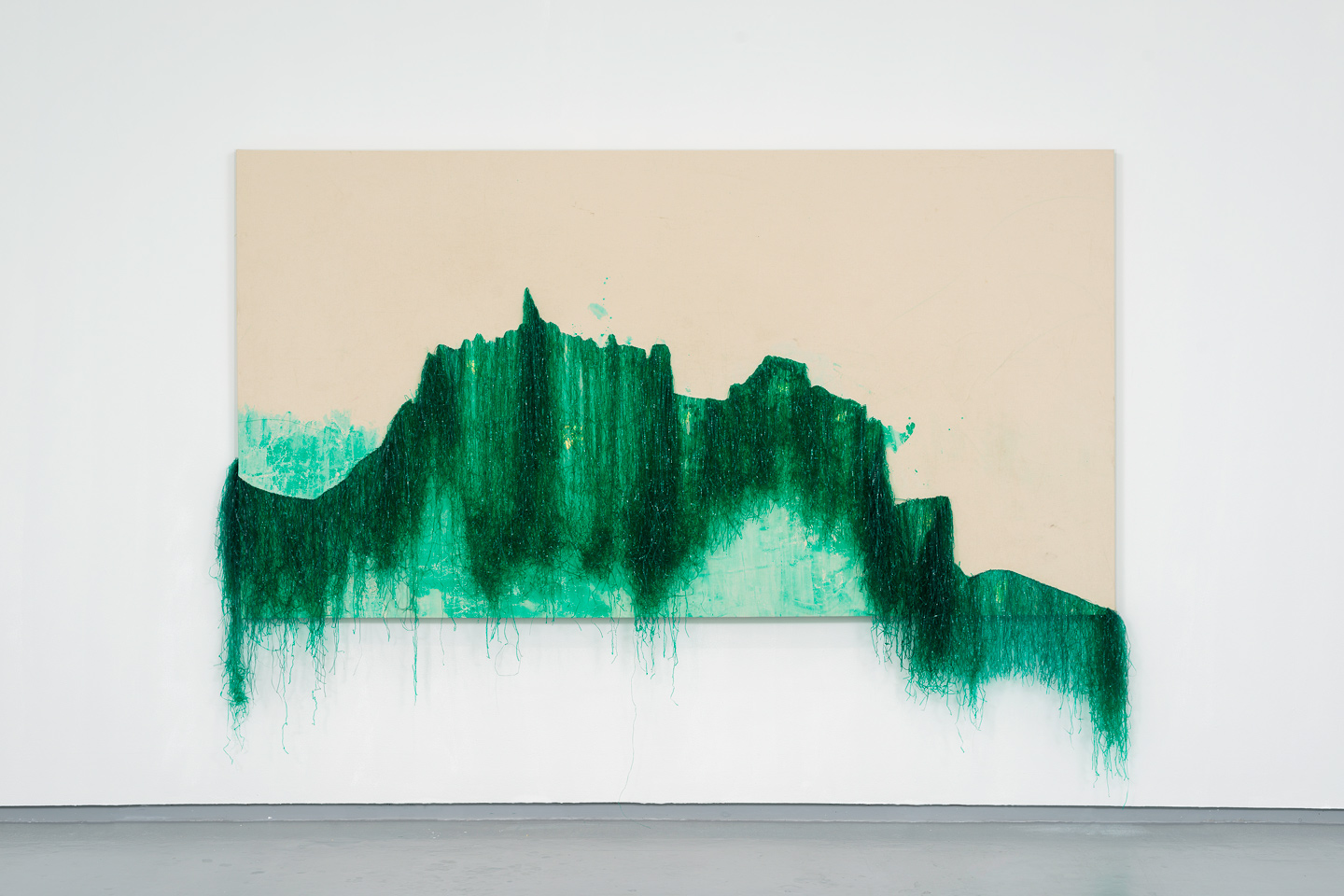Deschooling: climate and art

Asemahle Ntlonti (2020) Ezonzibileni III. Unthreaded polypropylene bags, soap and goal leaf on canvas. Photography by Matthew Bradley. Courtesty of the artist and What if the World Gallery.
“our imagination was ‘all schooled up’.” – Ivan Illich, Deschooling Society (1973)
Deschooling aims to provide a foundation for thinking about intersectional climate issues and contemporary art together. The project presents a series of conversations with artists, curators and editors, accompanying short texts and a reference guide for further reading. Inspired by Ivan Illich’s critique of institutionalised educational systems, which recognised that “society is the result of conscious designs” that require educational opportunities that are both consciously designed and unconsciously embedded, the project similarly begins by recognising that our reliance on specialised, full-time instruction through formal schooling does not fully equip our imaginations to comprehend and respond to the climate crisis. Here, thinking with and through art towards climate is an opportunity to “find more ways to learn and teach.”
The project aims to ‘deschool’ both the climate crisis and arts criticism by exploring different approaches to engage with intersectional climate issues without those practices being reductively deemed ‘green’ or doom and gloom by asking questions like: What new ways of learning and teaching can deschool imagination? What approaches, methods and skills that can be learnt from creative practice to better communicate climate issues? How can creative practices, like arts writing, be strengthened by a deeper understanding of the climate crisis?
Focusing on contemporary art and writing from South Africa and Nigeria, Deschooling investigates approaches and ways of thinking that are free from institutional baggage or ideological expectation; the different ways that editorial, artistic and curatorial practices come together and lessons that can be learnt for exploring creative practice to develop deeper climate awareness.
Sindi-Leigh McBride is a researcher and writer from Johannesburg, and a PhD candidate at the Centre for African Studies, University of Basel. She holds MA degrees in International Relations and Political Communication and has worked in the private, nonprofit and public sectors in South Africa. Her research and writing focuses on the nexus between international development, mediated communication and culture, and her essays, art writing and short stories have appeared in Africa’s a Country, Kalahari Review, New Frame and more.
